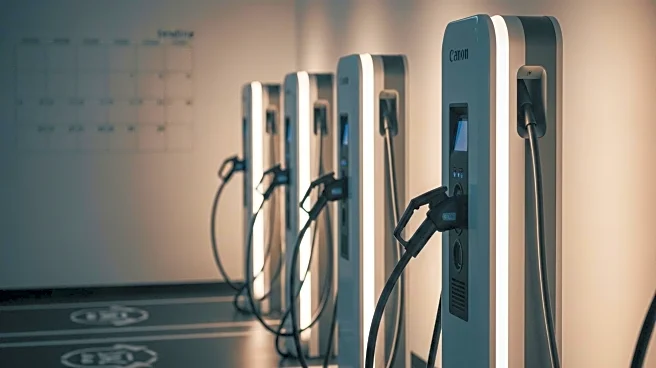What's Happening?
CleanTechnica has published an article detailing the current landscape of used electric vehicles (EVs) in the United States, emphasizing affordability and the impending deadline for a $4,000 tax credit on used EV purchases. The article outlines the criteria used to identify the cheapest options, such as excluding vehicles with over 50,000 miles or those involved in accidents. The focus is on models with an MSRP under $60,000, and the search is conducted within a 100-mile radius of Southwest Florida. Notably, the Volkswagen ID.4 is highlighted as a model available at a significantly lower price used compared to new, potentially due to its infotainment system.
Why It's Important?
The article is significant as it provides insights into the used EV market, which is becoming increasingly relevant due to environmental concerns and the push for sustainable transportation. The $4,000 tax credit deadline adds urgency for consumers looking to make cost-effective and environmentally friendly vehicle purchases. This development could influence consumer behavior, encouraging more people to consider EVs as viable alternatives to traditional gasoline-powered vehicles. The focus on affordability and specific models like the Volkswagen ID.4 may also impact market dynamics, potentially increasing demand for certain brands and models.
What's Next?
As the deadline for the tax credit approaches, consumers may rush to purchase used EVs to take advantage of the financial incentive. This could lead to increased sales and potentially higher prices in the short term. Additionally, the ongoing tracking and analysis of used EV prices by CleanTechnica may provide valuable data for consumers and industry stakeholders, helping to shape future market trends and consumer preferences. The article suggests that further updates and detailed tracking will continue, potentially influencing how consumers approach used EV purchases.
Beyond the Headlines
The focus on used EVs highlights broader trends in the automotive industry, including the shift towards sustainable transportation and the growing importance of affordability in the EV market. This shift may have long-term implications for car manufacturers, encouraging them to produce more cost-effective and reliable EV models. Additionally, the emphasis on tax credits and financial incentives underscores the role of government policy in shaping consumer behavior and promoting environmental sustainability.











